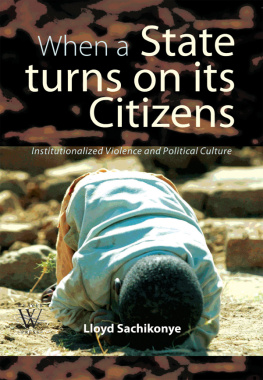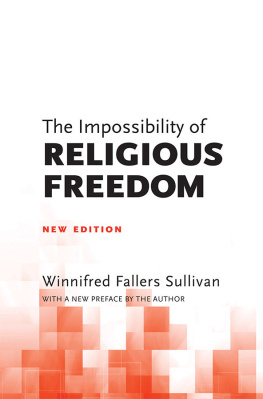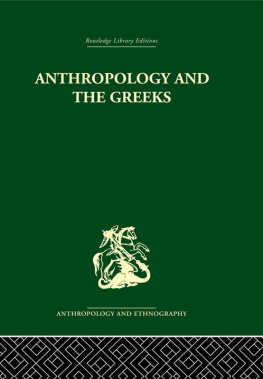The
SOCIAL
ANTHROPOLOGY
of the
NATION-STATE
First published 1974 by Transaction Publishers
Published 2017 by Routledge
2 Park Square, Milton Park, Abingdon, Oxon OX14 4RN
711 Third Avenue, New York, NY 10017, USA
Routledge is an imprint of the Taylor & Francis Group, an informa business
Copyright 1974 by Taylor & Francis.
All rights reserved. No part of this book may be reprinted or reproduced or utilised in any form or by any electronic, mechanical, or other means, now known or hereafter invented, including photocopying and recording, or in any information storage or retrieval system, without permission in writing from the publishers.
Notice:
Product or corporate names may be trademarks or registered trademarks, and are used only for identification and explanation without intent to infringe.
Library of Congress Catalog Number: 2011001539
Library of Congress Cataloging-in-Publication Data
Fallers, Lloyd A.
The social anthropology of the nation-state / Lloyd A. Fallers.
p. cm.
Originally published: Chicago : Aldine Pub.Co., 1974.
ISBN 978-1-4128-1866-7
1. Nationalism. 2. Nation-state. 3. Africa, East--Politics and government. 4. Turkey--Politics and government--1918-1960. 5. Turkey--Politics and government--1960- I. Title.
D445.F34 2011
320.11--dc22
2011001539
ISBN 13: 978-1-4128-1866-7 (pbk)
CONTENTS
To Audrey Richards
and Edward Shils
The Lewis Henry Morgan Lectures, presented at The University of Rochester annually since 1963, serve to commemorate the man and his work. They also provide the Lecturer with an opportunity to explore, summarize and examine developments since Morgans time, or to present new views.
In the set of Lectures offered here, Professor Fallers offers a stimulating discussion of nation-states considered in the framework of social anthropology, making skillful use of his own work in East Africa and in Turkey.
Anthropologists familiar with the work of Morgan will note many connections with it and also many departures. Those who have followed Professor Fallers career will recognize in this book elements of what has gone before, skillfully combined with much that is new and provocative. What is presented here will certainly stimulate debate, and will provide important points of departure for anthropologists concerned with a very wide range of problems.
All who heard Professor Fallers present his Lectures, or who discussed his work with him in seminars and in less formal circumstances, will recall with pleasure his relaxed tolerance in face of divergent views, and his eagerness to join others in exploring still further. With his lectures in print, it will make it possible for a larger audience to appreciate this most recent example of his wide-ranging scholarship.
The 1971 Lewis Henry Morgan Lectures were delivered on April 6th to 15th. This volume is a revision of the original Lectures, and to them, Professor Fallers has added a concluding chapter.
ALFRED HARRIS
Department of Anthropology
University of Rochester
Brief remarks on the connection of Lewis Henry Morgan with The University of Rochester, and on- the initiation of the Morgan Lectures in 1963, are to be found in the Foreword to Professor Meyer Fortes Kinship and the Social Order (Aldine, 1969).
It is indeed an honor to be invited to deliver the Lewis Henry Morgan lectures, honoring one of the founders of the anthropological discipline, and especially to be invited to speak in succession to Fred Eggan, Meyer Fortes, Floyd Lounsbury and all the others who have set such an intimidatingly high standard for this occasion.
In speaking on the subject I have chosen, The Social Anthropology of the Nation-State, on Morgans home ground and in a series honoring him, I am sensible of being in somewhat contentious dialogue with a man of another time and of a different turn of mind: his age was a more optimistic one than our own and Morgan himself more optimistic than I, at any rate, felt it easy to be with respect to contemporary civilization. Morgan saw the modern democratic nation-state as the culmination of human political experience a revival of, and an improvement upon, the political institutions of classical antiquity and its antecedents (see Morgan 1871:351-52). If the nation-state seems to many of us today a more problematical achievement, it is because the intervening century has left us sadder, if not wiser, about the results of modern mans efforts to govern himself in a civilized manner. At the same time, I take heart from Morgans interest in these matters. If he viewed democracy from an excessively materialistic and evolutionary perspective a perspective with which I shall have occasion in these lectures to quarrel I nevertheless take courage from his belief that a social anthropologist might have something useful to say about the subject about the nature of... that form of self-government which represents and expresses the average intelligence and virtue of a free and educated people (Morgan 1871:344).
I should like to express my gratitude to members of the Department of Anthropology at the University of Rochester, especially to Alfred and Grace Harris, Gerald and Andria Williams, Rene and Clara Millon, Walter and Cindy Sangree and Allan and Sue Hoben for their gracious hospitality during my two weeks in Rochester. They were also good enough to give me useful criticisms of the lectures which have, I believe, improved them. I should also like to thank others who have provided helpful criticism: Edward Shils, Margaret Fallers, Reinhard Bendix, Clifford Geertz, Lawrence Rosen, Michael Meeker, Dale Eichelman, James Siegel, Fahir z, Leonard Binder and Elizabeth Calkins. Much of the stimulus for the ideas presented here was provided by colleagues in the weekly seminar of the Committee for the Comparative Study of New Nations at the University of Chicago, especially Clifford Geertz, Aristide Zolberg, Morris Janowitz, Philip Foster, Nur Yalman and Manning Nash. I am particularly indebted to my teacher and colleague, Edward Shils. For twenty-five years he has been for me a source of enlightenment and inspiration in his devotion to the study of the interrelations among civility, liberty and justice. The influence of his work pervades these lectures; indeed, as I submit them for publication, I have the uncomfortable suspicion that there is little here that he did not teach me about their subject.
I must also record my lasting debt to Audrey Richards for what she taught me in London and East Africa. Under her leadership the East African Institute for Social Research provided a stimulating environment for research and the discussion of research on East African societies.
Finally, I am most grateful to the agencies and foundations whose financial support enabled me to carry out research in East Africa and Turkey: the Fulbright Program, the Colonial Development and Welfare Fund, the Carnegie Corporation, the Rockefeller Foundation and the National Science Foundation.
THE SOCIAL ANTHROPOLOGY OF THE NATION-STATE
ONE
MICROCOSMS AND MACROCOSMS
The age of nationalism represents the first period of universal history. What preceded it, was the long era of separate civilizations and continents among which little, if any, intercourse or contact existed.










